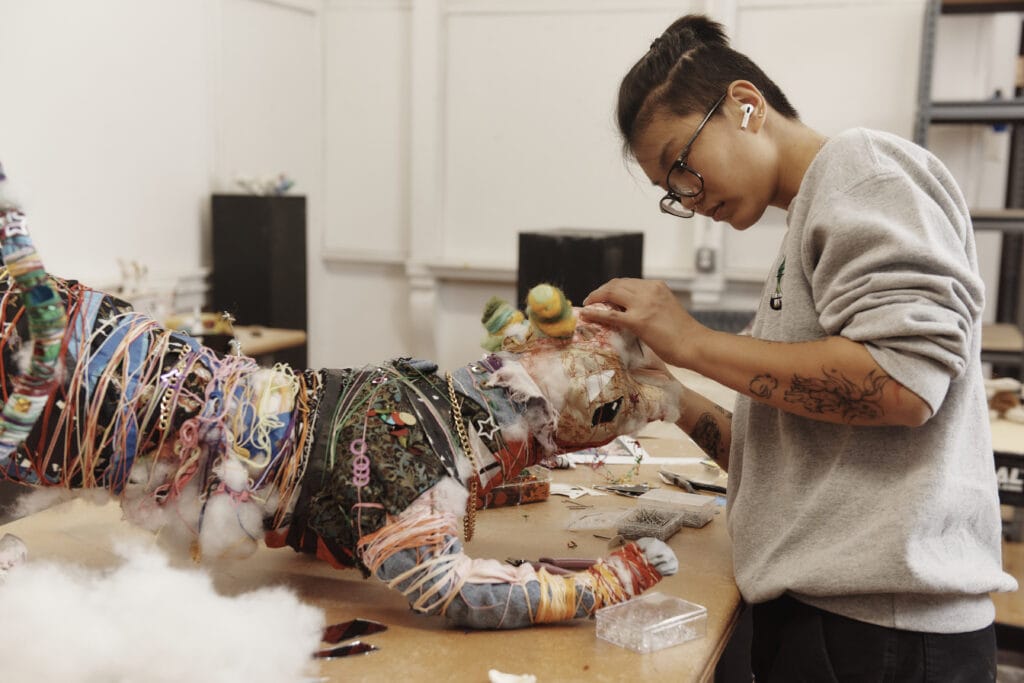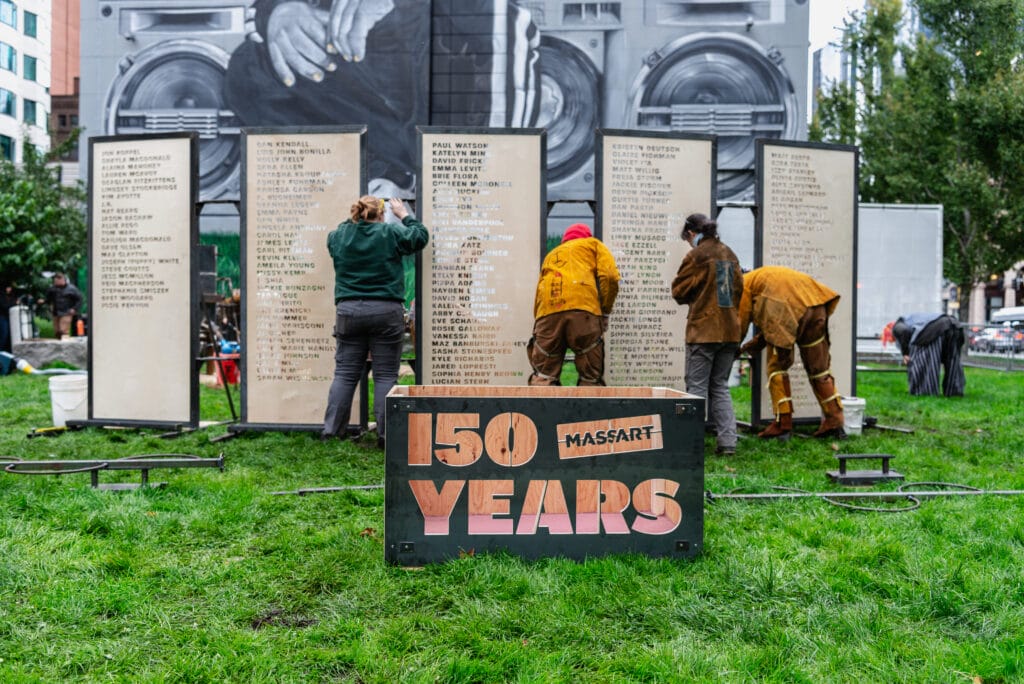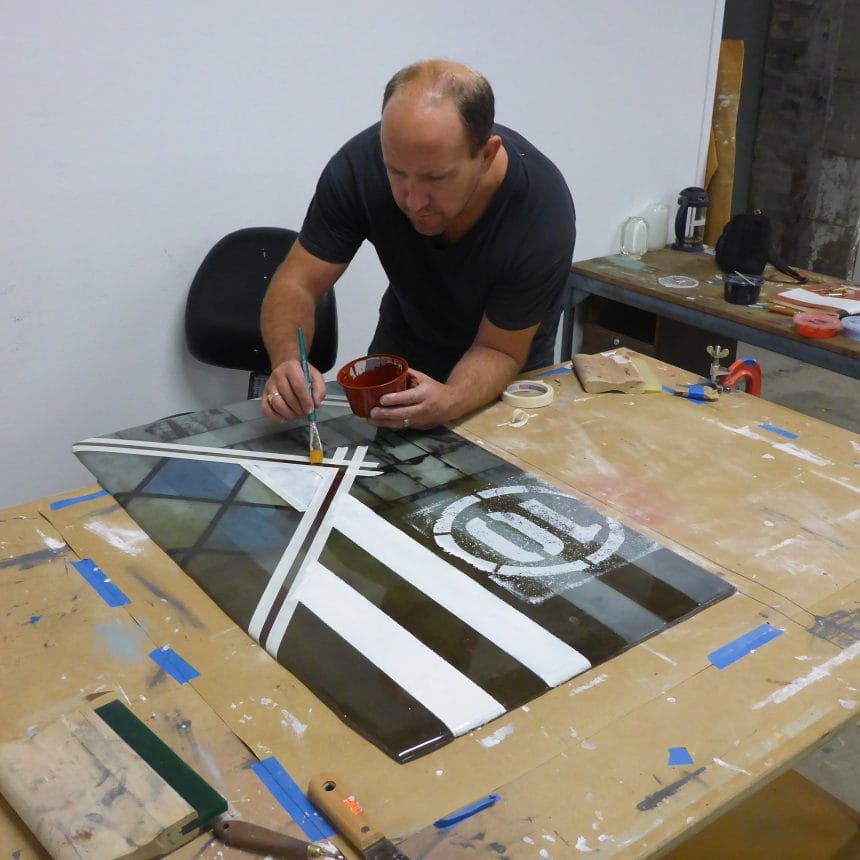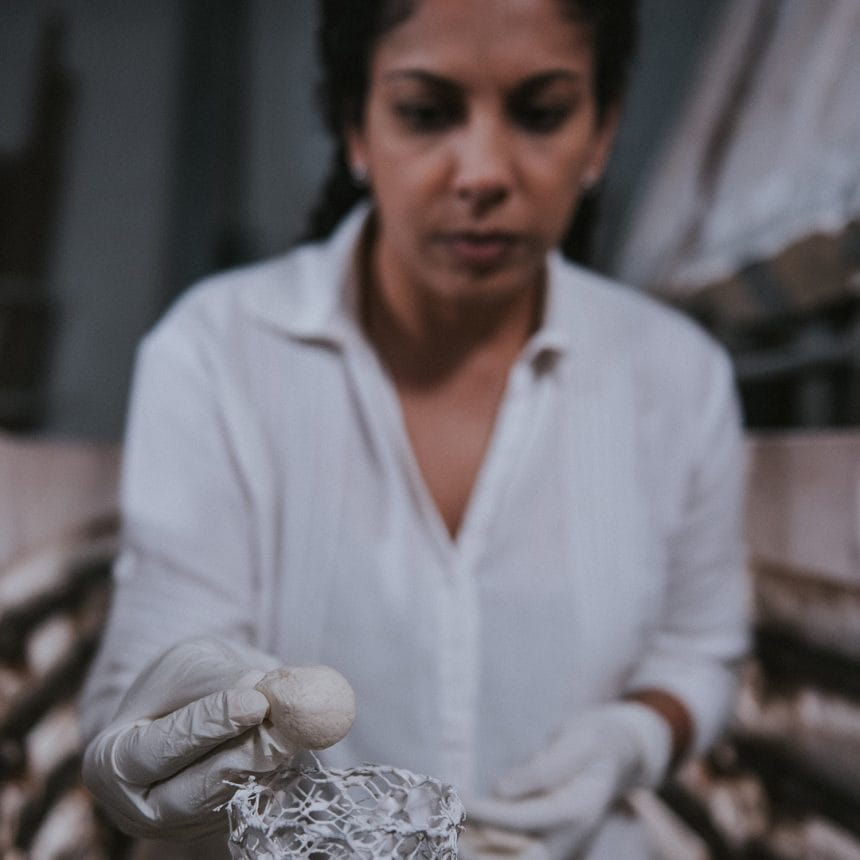Join an innovative and creative community that values craft and technology, fosters critical thinking, and nurtures sustainable approaches to glass.
Glass majors at MassArt cultivate the critical knowledge to pursue sustainable and meaningful futures as creative glass practitioners. Our curriculum provides a progressive trajectory that develops technical skills in glassblowing, flameworking, casting, mold-making, carving, and cold construction to inform thematic projects, historical context, personal interests, and professional development.



Specialized glass studio courses examine materiality, process, and emerging technology, and seminars encourage students to examine the values that drive their work, their role as artists in society, and the relevant context for their work.
MassArt’s comprehensive glass studios provide state-of-the-art equipment for glass fabrication, including two furnaces for casting, blowing, and hot-sculpting glass, two workstations, and four annealers. The new flameshop is outfitted with five torches and workstations, and two annealers. Kilns support casting and fusing courses, and two state-of-the art coldshops include a sandblaster, carving equipment, polishing tools, and a Mercker lathe.
In the studios and classrooms, our dedicated and accomplished Glass faculty work directly with students to provide technical instruction, facilitate discussions and lectures, and provide individualized feedback and support. Beyond the curriculum, students are encouraged to participate in a wealth of opportunities to enrich their experience at MassArt and develop their personal practices through travel, scholarships, and networking with professionals in the field.
Notable alumni of MassArt’s Glass program are successful creative entrepreneurs, exhibiting artists, award-winning designers, technical fabricators, and educators.
BFA Learning Outcomes
Students who complete the Glass BFA program are expected to be able to demonstrate the following learning outcomes.
- Develop skill and an understanding of the importance of craftsmanship
- Understand a wide range of approaches and methodologies to problem solving
- Develop good working habits & self discipline
- Develop cross disciplinary awareness
- Develop an understanding of conceptual, symbolic and metaphoric issues
- Develop an awareness of historical, contemporary, cross-cultural issues and artists working in their field
- Encourage their personal vision and imaginations to become a tangible reality
- Develop a working knowledge of design principles
- Develop a sense of being an artist using life and studio experience to support their ideas
- Cooperative classroom experience
- Foster collaboration among peers
- Establish relationships/ work with community
- Safety: tools, equipment, materials, processes
- To assume the responsibility of the development of their own professional career in whatever direction it may take
- Participate in critical dialogue with peers in their field
- Develop professional and vocational resources
- Sustainability


















